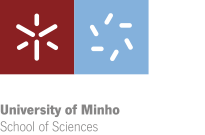Entrance Testing
19 Mathematics A
and
One of the following exams:
02 Biology and Geology
04 Economics
07 Physics and Chemistry
10 Descriptive Geometry
18 Portuguese
This information must be verified on
http://www.dges.gov.pt/guias/detcursopi.asp?codc=9209&code=1000


